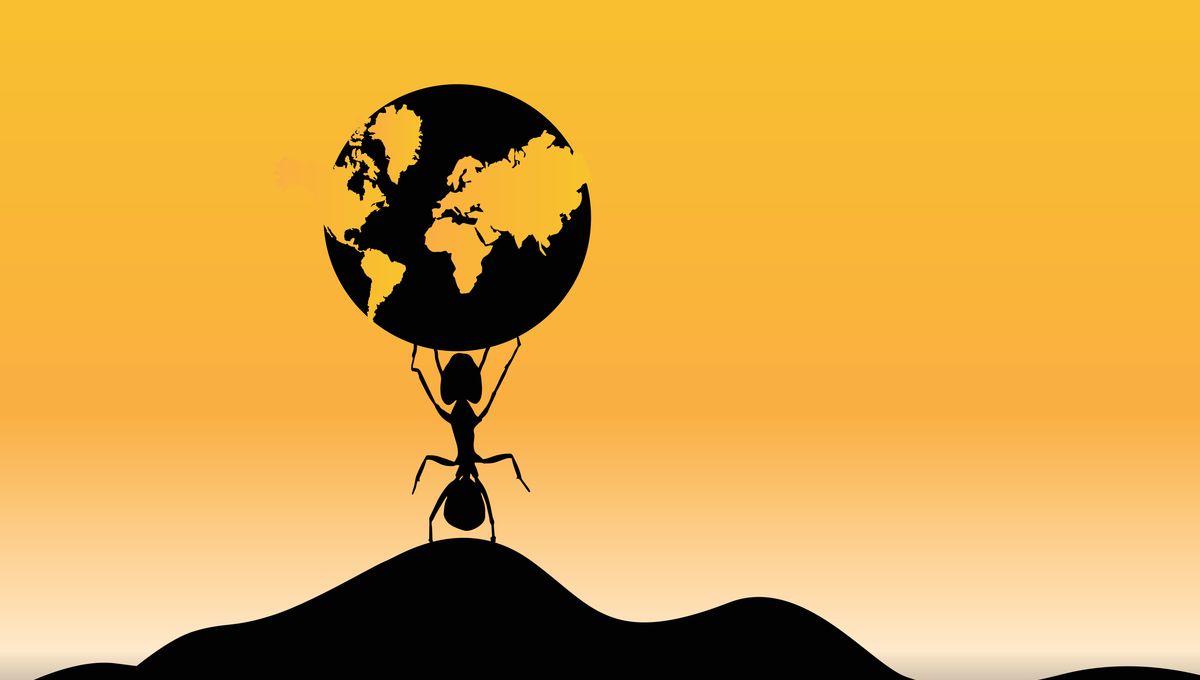
“The little things that run the world” is how biologist Edward O. Wilson described insects and other invertebrates – and it’s hard to argue with him when you look at the distribution of ants across the globe. The irrepressible creepy crawlies have colonized almost every landmass on Earth – but there are a few exceptions.
How many ants are there?
First things first, how many ants are there in the world? Fortunately, scientists have already done the math here: in 2022, a “conservative” (!?) estimate suggested our planet is home to 20 quadrillion, yep, quadrillion, ants. That’s 20 million billion and amounts to a total biomass of 12 megatons of dry carbon.
This exceeds the combined biomass of all the wild birds and mammals on Earth, and is equivalent to around 20 percent of human biomass. In short, it’s a LOT of ants. And even then, it’s likely an underestimation.
The team combined around 500 studies of ground-dwelling and tree-living ants in almost every major land-based ecosystem to get an estimate of overall abundance. However, this didn’t account for members of colonies that don’t leave their nests to forage, as well as areas where data is sparse, such as boreal forests.
Where do all these ants live?
The same study also took a look at ant distribution, concluding that those 20 quadrillion critters aren’t spread evenly across the planet.
For example, ground-dwelling ants are strongly concentrated in tropical and subtropical regions. Almost two-thirds are found in just two biomes – tropical moist forests and tropical savannahs – although distribution varies wildly across habitats.
The density of these leaf-litter ants is four times higher in forests than it is in shrubland, the researchers found, while the number of ground-foraging ants is highest in arid regions.
Despite advancements from studies like this, there is still a lack of data on ant populations in certain parts of the world, meaning there’s likely to be gaping holes in our knowledge of ant biodiversity.
Ants have conquered the world (almost)
There are over 15,700 known species and subspecies of ant – and they’ve spread far and wide since they first emerged between 140 and 168 million years ago.
The almost ubiquitous insects can be found on every continent on Earth except Antarctica. There are also no native species found in Iceland, Greenland, parts of eastern Polynesia, and a few of the planet’s most remote islands.
Want to see for yourself how these ants are distributed around the globe? Check out the total number of species found in each country or region with the interactive antmaps.org.
How did ants take over the planet?
They may be pretty much everywhere these days, but that wasn’t always the case.
“When you look around the world today, you can see ants on nearly every continent occupying all these different habitats, and even different dimensions of those habitats,” said Matthew Nelsen, a research scientist at the Field Museum in Chicago and lead author of a 2023 paper investigating how ants came to be so universal, in a statement.
“We’re trying to understand how they were able to diversify from a single common ancestor to occupy all these different spaces.”
For the past 60 million years, ants have been evolving alongside plants and seemingly taking their lead from their leafy counterparts, Nelsen and colleagues found.
“Around this time, some of the plants in these forests evolved to exhale more water vapor out through tiny holes in their leaves – they made the whole place a lot wetter, so the environment became more like a rainforest,” explained Nelsen. In response, some ants moved their nests from being primarily underground to up in the trees.
Similarly, when flowering plants spread out from forests and started to colonize drier regions, the ants followed, kickstarting the evolution of the many ant species alive today.
As a result, it’s apparently now the ants’ world, we’re just living in it – unless you’re in Antarctica, of course.
Source Link: Ants Have Taken Over Most Of The World – Except For A Few Places